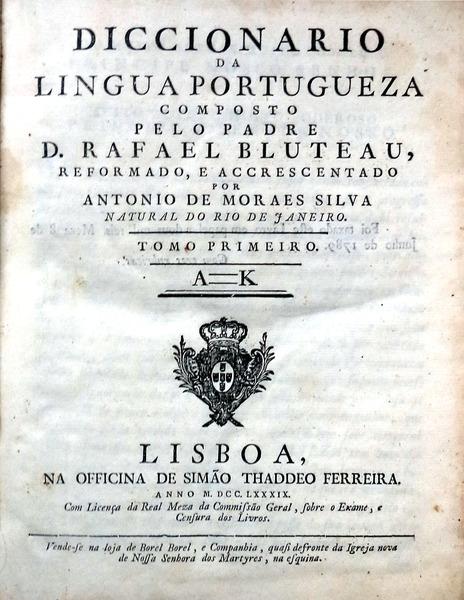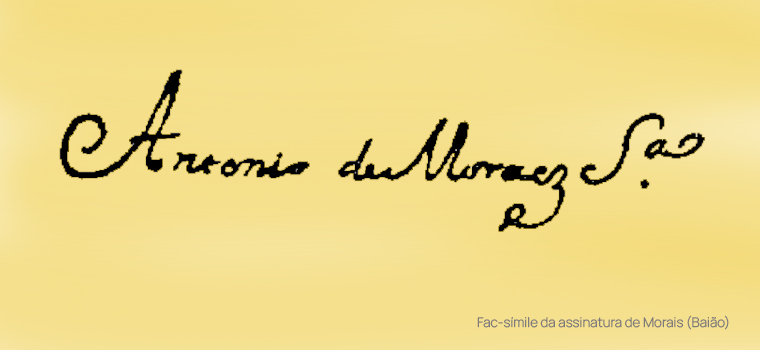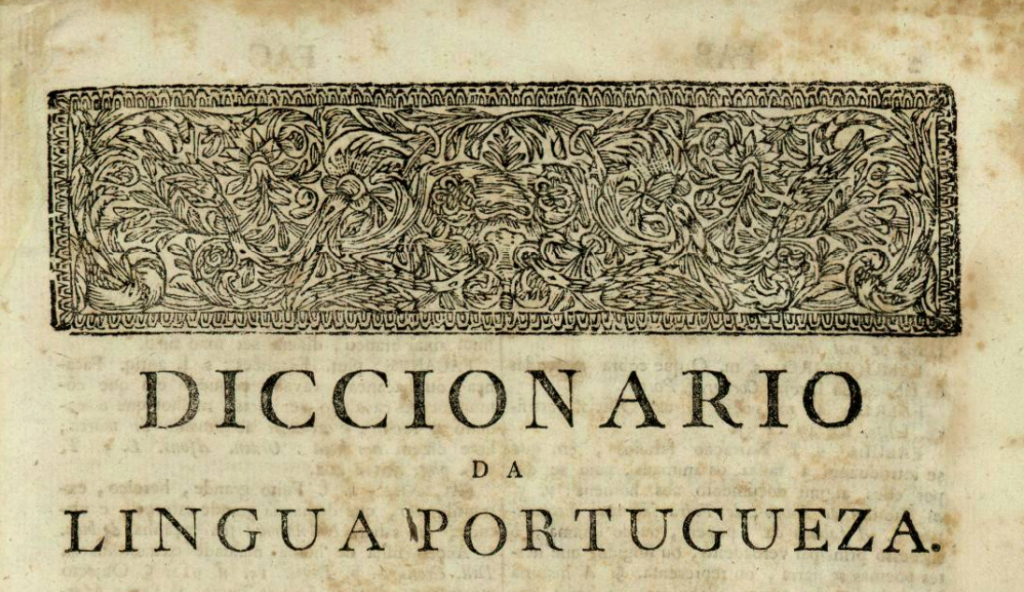MORDigital – Digitisation of Diccionario da Lingua Portugueza by António de Morais Silva
The main goal of MORDigital is to encode the selected editions of Diccionario de Lingua Portugueza by António de Morais Silva, first published in 1789. The Morais dictionary represents a great legacy, since it marks the beginning of Portuguese dictionaries, having served as a model for all subsequent lexicographic production throughout the 19th and 20th centuries.
MORDigital follows a new paradigm in lexicography, which results from the convergence between lexicography, terminology, computational linguistics, and ontologies as an integral part of digital humanities and linked (open) data, aligned with the FAIR principles.
In the Portuguese context, this research fills a gap with regard to searchable online retrodigitised dictionaries, built on current standards and methodologies which promote data sharing and harmonisation, namely TEI Lex-0, LMF and Ontolex-Lemon. The team will further ensure the connection to other existing systems and lexical resources, particularly in the Portuguese-speaking world.
The project (DOI 10.54499/PTDC/LLT-LIN/6841/2020) has the support of Portuguese national funding through FCT – Fundação para a Ciência e Tecnologia, as a project submitted to the IC&DT Project Competition in all scientific domains.
Start: March 1, 2021
End: August 31, 2024
Proposing Institution
– Universidade Nova de Lisboa (UNL)
Main Research Unit
– Centro de Linguística da Universidade Nova de Lisboa (CLUNL/FCSH/UNL)
Participating Institutions
– INRIA
– Istituto Di Linguistica Computazionale ‘A. Zampolli’, Consiglio Nazionale delle Ricerche (ILC)
– European Research Infrastructure Consortium (DARIAH-EU)

Goals
1) to analyse all the components that constitute the macro and microstructure of the dictionary;
2) to identify, organise and describe the different levels of linguistic knowledge to systematically apply the standards;
3) to develop methodologies that can be replicated in other applications and test the alignment of the different encodings of the Morais dictionary;
4) to participate in the review of the corresponding standards as members of standards-making bodies and scientific forums;
5) to suggest best practices for harmonising and coding lexical resources;
6) to make the Morais dictionary accessible through an open access platform.
TO KNOW MORE...

The Lexicographer
The author of the famous dictionary being studied is António de Morais Silva (1757?–1824), a renowned Brazilian lexicographer, born in Rio de Janeiro. Morais graduated in Civil and Canon Law from the University of Coimbra, but did not embark on a legal career, as he was persecuted by the Inquisition, which, accusing him of heresy, had ordered his arrest. Managing to flee to England, he devoted himself to the study of languages and translated and annotated a História de Portugal. It was in London that Morais organized the structure of his future dictionary. The lexicographer left English exile in 1785, returning to Portugal. He moved to Brazil in 1794 and entered the career of the judiciary, holding the position of judge of the Bahia Court of Appeal, which he soon resigned, due to disagreements with the chancellor. He went to Muribeca, in Pernambuco, where he lived until his death on April 11, 1824.

The Dictionary
The Dicionário da Língua Portuguesa, by António de Morais Silva, is commonly known as Dicionário Morais, is titled in its edition princeps, dated 1789, Diccionario da Lingua Portugueza composed by Father D. Rafael Bluteau, reformed, and added by Antonio de Moraes Silva, born in Rio de Janeiro.
The 1st edition dates from 1789 and is presented as a version of the Vocabulário Portuguez e Latino of 1712, by Rafael Bluteau.